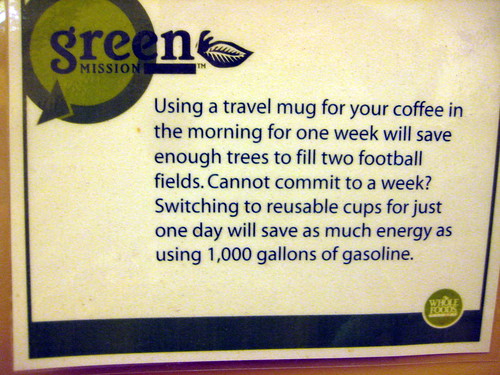The Sustainable Classrooms Contract at Saint Michael’s College
Earlier this year we offered our recommendations for a green new year. More and more, students across America are beginning to realize that if we want to preserve this wondrous world we have been given we must commit ourselves to a greener lifestyle.
The Sustainable Classrooms Contract
A great example for all of us to emulate comes from the students and staff of St. Michael’s College in Colchester, Vermont. In an effort to get professors and students to practice sustainable living habits within the academic environment, Green Up SMC and the Environmental Council, along with a new Office of the Sustainability, are working on instituting “The Sustainable Classrooms Contract.”
The goal is to make sustainable living practices a fundamental habit. By making them a part of the higher education learning process, the organizations believe these habits will carry over into students’ and professors’ daily lives.
The contract is broken into two fundamental areas.
Primary Initiatives
 Offering a very short list of primary initiatives, these are easy to remember and implement.
Offering a very short list of primary initiatives, these are easy to remember and implement.
- No disposable containers allowed in the classroom (i.e. paper coffee cups and plastic water bottles). Instead, students and professors should consider bringing their own reusable mugs, bottles, or food containers.
- Always participate in recycling by using the correct bins within the classrooms (no matter what shape or size; blue is always the recycling bin).
- Use both sides of notebook paper. Print double-sided whenever possible.
- Limit the use of paper handouts, through the use of electronic programs, including but not limited to eCollege and e-mail.
- Insure all lights are turned off when not in use and upon leaving the classroom.
Secondary Initiatives
The secondary initiatives represent some large and small scale items:
- Limit the number of lights used in the classroom.
- Use alternative means of transportation when going to and from class, including but not limited to walking, the CCTA bus, the campus shuttle and/or bicycles.
- Explore options to more efficiently use paper in type-written assignments (adjust margins and font, 1-1.5 spacing).
- Allow students to turn in assignments via electronic sources.
- Weave environmental themes such as global climate change, resource depletion, drinking water scarcity and food security into course curriculum when possible.
- Emphasize the importance of small scale efforts and initiatives (such as this contract) in the larger environmental movement. The small stuff is important!
Suggested Practice
While we would move the second secondary initiative to the top list in a heartbeat, we also like the overall philosophy of the sustainability contract. The folks at St. Michael’s note that all sustainability initiatives are suggestions and that each class can modify the contract to best fit their needs while still staying true to the purpose of this initiative. In simplest terms, the contract may be modified by professors and students alike.
 Yet another aspect that deserves mention is the recommendation that each student and professor sign on to the Sustainable Classrooms Contract for each and every class. But the sign on process may be initiated by a professor or by the students.
Yet another aspect that deserves mention is the recommendation that each student and professor sign on to the Sustainable Classrooms Contract for each and every class. But the sign on process may be initiated by a professor or by the students.
And finally, most importantly, as it is a contract, both parties are expected to live up to the document. Therefore, each has the responsibility to self-enforce the agreement.
Replicate the Idea
This simple idea represents a critical step in moving towards a more sustainable culture. It makes everyone aware of the need to change certain behaviors and begins the process, one small step at a time, towards preserving this wondrous planet.
Flickr photos courtesy of Tobo and Woodley Wonder Works


[…] Michael’s College in Colchester, Vermont has taken the initiative to create a Sustainable Classrooms Contract for professors and students to follow. The idea is that by enforcing sustainable practices in the […]